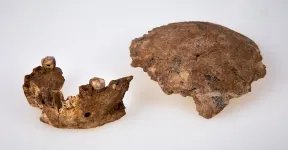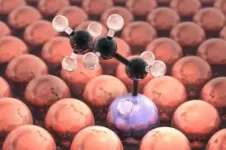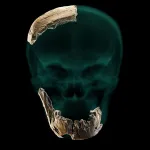(Press-News.org) Scientists need to focus on tangible efforts to boost equity, diversity and inclusion in citizen science, researchers from North Carolina State University argued in a new perspective.
Published in the journal Science, the perspective is a response to a debate about rebranding "citizen science," the movement to use crowdsourced data collection, analysis or design in research. Researchers said that while the motivation for rebranding is in response to a real concern, there will be a cost to it, and efforts to make projects more inclusive should go deeper than that. Their recommendations speak to a broader discussion about how to ensure science is responsive to the needs of a diverse audience.
"At its heart, citizen science is a system of knowledge production that doesn't block entry based on credentials," said first author Caren Cooper, associate professor of forestry and environmental resources at NC State. "Those of us in citizen science have been saying 'science is for everyone, you don't need a degree or special training.' But, the sad irony is that it hasn't been for everyone. The overwhelming majority of participants resemble their academic counterparts, who are often white, affluent and have advanced degrees. We want to take the good intentions that are driving rebranding, and commit to long-term, sustained efforts to reimagine an inclusive citizen science."
The term "citizen science" was coined in the 1990s, researchers said, to describe science led by institutions that use volunteers to collect data. It has evolved to encompass many types of projects with public involvement in design, leadership or data collection and analysis. As a "citizen science campus," there are projects underway at NC State in which undergraduates, faculty, staff and the general public can help collect data. Examples include projects that rely on volunteers to help figure out the microbial content of sourdough bread or detect the presence of lead pipes in homes around the state.
In an effort to resolve concerns that the term is exclusionary to people who do not have citizenship status in a given nation, some organizations have moved toward using the term "community science," among other names. But researchers said community science is a distinct and existing research movement led and designed by communities, rather than institutions, to address environmental or social justice problems.
"It's a huge dis to community science to flippantly change the name like it isn't already being utilized, and could be considered disrespectful to people who are doing this work and have been for many years," said co-author Zakiya Leggett, assistant professor of forestry and environmental resources. "If you have a citizen science project, but you advertise it as 'community science,' it does a disservice to both practices."
In addition, there is a cost to losing the term "citizen science," they said, since the term has gained momentum globally. In the United States, the term is used in a federal law authorizing the government to include volunteers in scientific research irrespective of their credentials and citizenship status.
"There is a lot of work that has gone toward incorporating 'citizen science' as a part of policy, as well as being accepted into mainstream science," said co-author Madhusudan Katti, associate professor of forestry and environmental resources at NC State. "The name has been caught up in politicization of citizenship and nationalist politics, and rebranding is a little bit reactive. The concern is genuine, but the fix is not deep enough. Renaming something doesn't make it different from what it's been all along."
The researchers argued for strategic planning to advance accessibility, justice, equity, diversity and inclusion in citizen science.
"One approach that could work for citizen science is 'centering in the margins.' That can include centering research agendas based on the areas that are underserved by science," Cooper said.
Other tactics could involve ensuring there are diverse perspectives in project leadership, or overcoming economic barriers to participation. They also said there is a need for funding to support science that addresses interests, concerns and needs of people who have historically or are currently underserved by science.
They said rebranding, if needed, should only happen if it is called for as part of a broader strategic plan. They also said rebranding efforts should refrain from co-opting existing terminology, avoid exporting issues in the United States to the rest of the world, and identify terminology to help further clarify distinctions for different types of projects.
"We wanted the fact that diversity and inclusion in citizen science remains elusive to serve as a canary in the coal mine to the rest of the scientific community - it takes far more than words and good intentions to be inclusive," Cooper said. "We can learn from community science without co-opting it. We need to figure this out without expecting quick-fix solutions, because those can do more harm than good."
INFORMATION:
The perspective, "Inclusion in citizen science: The conundrum of rebranding," was published online in Science. In addition to Cooper, Katti and Leggett, other authors included Chris L. Hawn, Lincoln R. Larson, Julia K. Parrish, Gillian Bowser, Darlene Cavalier, Robert R. Dunn, Mordechai (Muki) Haklay, Kaberia Kar Gupta, Na'Taki Osborne Jelks, Valerie A. Johnson, Omega R. Wilson and Sacoby Wilson. Researchers reported funding from the National Science Foundation, through grant No. 1713562, to Cooper and Larson.
Parents of children with the most complex medical conditions are more likely to report poor or fair mental health and struggle to find community help, according to a study completed by researchers at University of Rochester Medical Center (URMC) and Golisano Children's Hospital. The study was published in Pediatrics, the journal of the American Academy of Pediatrics (AAP).
The study, "A National Mental Health Profile of Parents of Children with Medical Complexity," examined parent-reported data from the National Survey of Children's Health, and compared three groups: households of children with medical complexity (CMC), households of noncomplex children with special health care needs, and households of children ...
Not all stresses are created equal, according to a pair of new studies, which shows that distinct ubiquitination patterns underlie cell recovery following different environmental stressors. Eukaryotic cells respond to environmental stressors - such as temperature extremes, exposure to toxins or damage, for example - through adaptive programs that help to ensure their survival, including the shutdown of key cellular processes. These responses are often associated with the formation of stress granules (SGs) - dense cytoplasmic aggregations of proteins and RNA - as well as with ...
Although the Antibody Mediated Prevention (AMP) study that launched in 2016 failed to show significant efficacy in a pair of clinical trials, Denis Burton argues in a Perspective that the AMP study's results represent a landmark in AIDS research; they show - for the first time - that a broadly neutralizing antibody (bnAb) can protect humans against exposure to some strains of HIV. According to Burton, the AMP study's data - despite not showing a significant difference between the numbers of infected individuals in the treated groups versus those in the placebo groups - still have tremendous implications for future HIV vaccine design and passive bnAb use strategies. The AMP study evaluated the immunotherapeutic ...
BINGHAMTON, N.Y. -- Analysis of recently discovered fossils found in Israel suggest that interactions between different human species were more complex than previously believed, according to a team of researchers including Binghamton University anthropology professor Rolf Quam.
The research team, led by Israel Hershkovitz from Tel Aviv University, published their findings in Science, describing recently discovered fossils from the site of Nesher Ramla in Israel. The Nesher Ramla site dates to about 120,000-140,000 years ago, towards the very end of the Middle Pleistocene time period.
The human fossils were found by Dr. Zaidner of ...
Researchers at Tufts University, University College London (UCL), Cambridge University and University of California at Santa Barbara have demonstrated that a catalyst can indeed be an agent of change. In a study published today in Science, they used quantum chemical simulations run on supercomputers to predict a new catalyst architecture as well as its interactions with certain chemicals, and demonstrated in practice its ability to produce propylene - currently in short supply - which is critically needed in the manufacture of plastics, fabrics and other chemicals. The improvements have potential for highly efficient, "greener" chemistry with a lower carbon footprint.
The demand for propylene is ...
The discovery of a new Homo group in this region, which resembles Pre-Neanderthal populations in Europe, challenges the prevailing hypothesis that Neanderthals originated from Europe, suggesting that at least some of the Neanderthals' ancestors actually came from the Levant.
The new finding suggests that two types of Homo groups lived side by side in the Levant for more than 100,000 years (200-100,000 years ago), sharing knowledge and tool technologies: the Nesher Ramla people who lived in the region from around 400,000 years ago, and the Homo sapiens who arrived later, some 200,000 years ago.
The new discovery also gives clues about a mystery in human evolution: How did genes of Homo sapiens penetrate the Neanderthal population that had presumably lived in Europe long before ...
Mythological nymphs reincarnate as a group of corn smut proteins to launch a battle on maize immunity. One of these proteins appears to stand out among its sister Pleiades, much like its namesake character in Greek mythology. The research carried out at GMI - Gregor Mendel Institute of Molecular Plant Biology of the Austrian Academy of Sciences - is published in the journal PLOS Pathogens.
Pathogenic organisms exist under various forms and use diverse strategies to survive and multiply at the expense of their hosts. Some of these pathogens are termed "biotrophic", as they are parasites that maintain their hosts alive. These biotrophic pathogens deregulate physiological processes in their hosts by suppressing their immune defenses and favoring disease development. ...
INDIANAPOLIS -- A first-of-its-kind large-scale study of vegetation growth in the Northern Hemisphere over the past 30 years has found that vegetation is becoming increasingly water-limited as global temperatures increase.
The results are significant since vegetation is one of the biggest factors when it comes to controlling water and carbon cycling across Earth, which influences global temperatures. The work by IUPUI and Indiana University Bloomington researchers Wenzhe Jiao, END ...
(Denver)-Patients with primary lung cancer detected using low-dose computed tomography screening are at reduced risk of developing brain metastases after diagnosis, according to a study published in the Journal of Thoracic Oncology.
JTO is an official journal of the International Association for the Study of Lung Cancer. The full study is available here: Impact of Low-Dose Computed Tomography Screening for Primary Lung Cancer on Subsequent Risk of Brain Metastasis - Journal of Thoracic Oncology (jto.org)
The researchers, led by Summer Han, PhD, from Stanford University School of Medicine in Palo ...
A new research paper published in the American Journal of Clinical Nutrition last week showed that a low Omega-3 Index is just as powerful in predicting early death as smoking. This landmark finding is rooted in data pulled and analyzed from the Framingham study, one of the longest running studies in the world.
The Framingham Heart Study provided unique insights into cardiovascular disease (CVD) risk factors and led to the development of the Framingham Risk Score based on eight baseline standard risk factors--age, sex, smoking, hypertension treatment, diabetes status, systolic blood pressure, total cholesterol (TC), and HDL cholesterol.
CVD is still the leading cause of death globally, and risk can be reduced by changing behavioral factors such as unhealthy diet, ...




